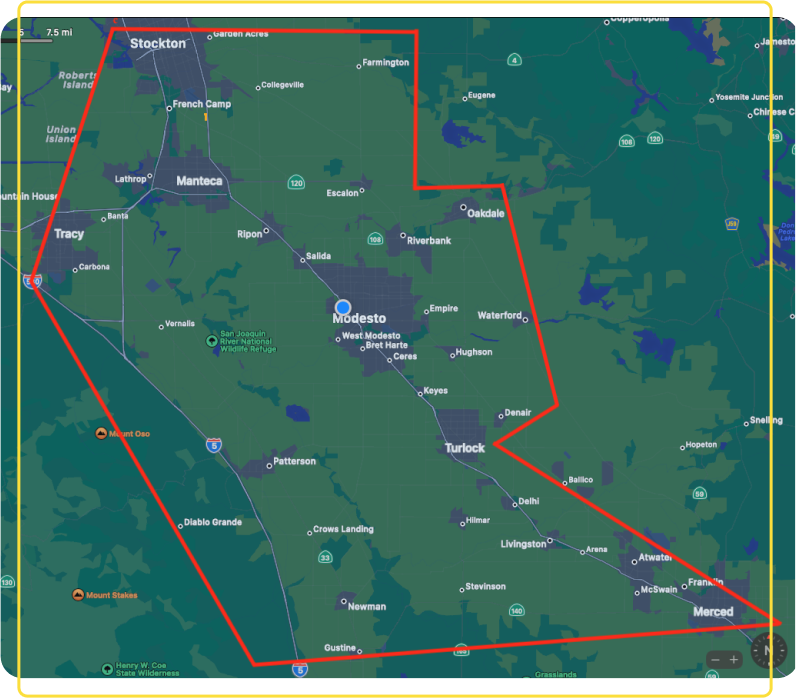Selecting the right HVAC system for your home is a decision that directly impacts your comfort, energy efficiency, and long-term savings. The key factors to consider before investing in one include the following:
Your Home’s Heating and Cooling Needs
The best HVAC system for your home should provide sufficient cooling, heating, humidity control, and air purification without struggling. This requires assessing the load your entire house will place on the system over its lifespan. Considerations include the size of your home, the number of rooms, your architectural design, insulation levels, and your area’s general climate.
Larger homes require powerful systems to effectively and efficiently heat or cool all sections. But that’s just one aspect; the layout of your home matters as well. For example, HVAC systems will have a relatively easier time circulating air through a single-story home with an open floor plan than a multi-story compartmentalized layout. The less demanding house could benefit from a smaller HVAC system size.
It’s important to note that bigger isn’t always better, and less isn’t more when it comes to installing air conditioning systems and heaters. A big HVAC system for your home will constantly cycle on and off, which means they won’t get a chance to properly condition your home, remove airborne particles, and control humidity. They also cost a fortune to run. Conversely, smaller systems for your house will run all the time but still struggle to satisfy your heating and cooling needs. As a result, they break down often and barely keep your home comfortable.
Consult with a professional to also help you account for the number of people occupying your home, the type of appliances you have, the amount of sunlight you are exposed to, and the condition of your insulation material. The more accurate the assessment, the better your HVAC system will perform.
Type of HVAC System
Your next consideration would be the type of system you want to install. Although they all do the same job of heating or cooling your home, the manner in which they operate can vary significantly. Options include split, packaged, and geothermal systems.
Split systems have indoor and outdoor units that work together to cool and sometimes heat your home. The common examples include standard air conditioners, air-source heat pumps, and ductless mini-splits.
Most people’s standard central air conditioner is a split system with a ductwork system. Those that don’t utilize a duct network are called ductless mini-splits.
People looking to create zones in their homes prefer ductless mini-splits. A professional can connect the outdoor unit to multiple indoor units in individual rooms, each with its own thermostat.
Modern central air conditioners can also be zoned. You can now install dampers inside your ductwork to control the flow of conditioned air inside your rooms.
Geothermal systems are the most durable and efficient systems you can install in a home. They also offer room for scalability if you plan to renovate your home in the future.
Packaged systems are suitable for smaller homes with limited outdoor space. They contain all air conditioning components in one unit that can be installed anywhere outside the building, including the roof. This unit is then connected to the home’s ductwork, distributing heated or cooled air to every room.
Efficiency Ratings
Efficiency ratings assess the HVAC system’s ability to use energy wisely. In other words, it determines how much power your system consumes to provide comfortable temperatures inside your home.
The two most important metrics to consider are SEER (Seasonal Energy Efficiency Ratio) and BTUh (British Thermal Units per hour). SEER quantifies a system’s cooling efficiency over a typical cooling season by comparing the total cooling output to the energy consumed in that timeframe. On the other hand, BTUh indicates how much power an HVAC system takes to remove heat from your indoor space per hour.
The higher the ratings, the more efficient the system. To simplify your selection process, look for an HVAC system with an ENERGY STAR label. This stamp means that the US Environmental Protection Agency has certified the system as meeting strict energy efficiency guidelines.
Contact Cencal Mechanical Heating & Air, Inc. for More Information
Before buying a new HVAC system in Modesto, CA, turn to Cencal Mechanical Heating & Air, Inc. for guidance. Our team of qualified and experienced technicians will assess your home’s heating and cooling needs as well as other critical factors and recommend the best type of system for optimum comfort and safety. We install, maintain, and repair all types of air conditioners and heaters, so you can trust us with all your HVAC requirements. We also offer tankless water heater installation and indoor air quality solutions. Contact us today to learn more.



